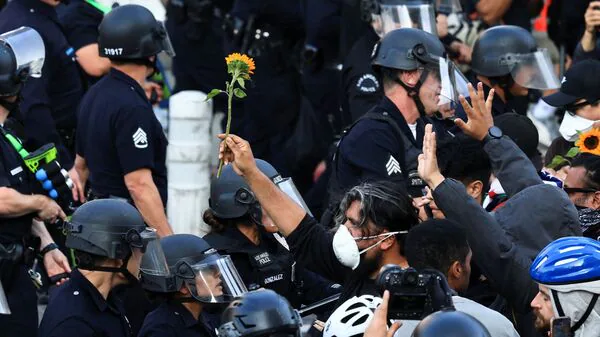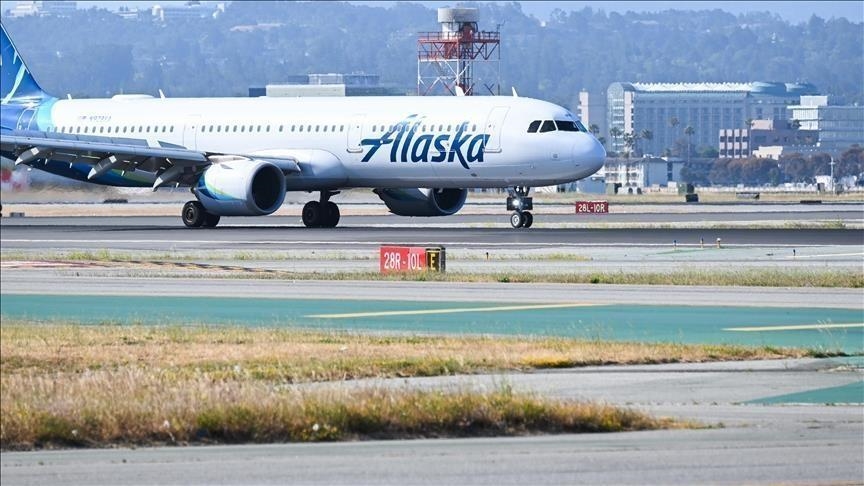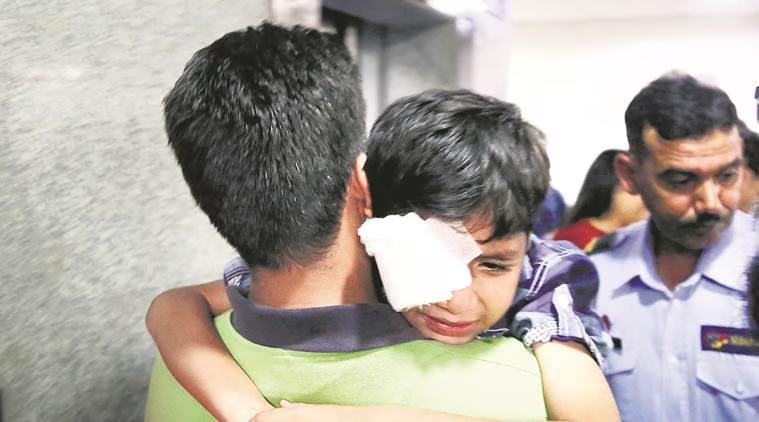Now Reading: Protests Escalate in Los Angeles as Biden Sends Additional Troops to Restore Order
-
01
Protests Escalate in Los Angeles as Biden Sends Additional Troops to Restore Order
Protests Escalate in Los Angeles as Biden Sends Additional Troops to Restore Order

Tensions continue to rise in Los Angeles as large crowds protest against the after-effects of policies and actions during Donald Trump’s presidency. The unrest, fueled by social and political grievances, has led President Joe Biden to deploy 700 Marines and an additional 2,000 National Guard troops. The situation highlights deep-rooted divisions and raises concerns about law enforcement, civil rights, and political accountability in America.
A City on Edge
Los Angeles has become a hotspot of unrest over the past few days. What began as peaceful protests soon turned intense, with demonstrators demanding justice, reform, and a clear rejection of Trump-era decisions. Many signs and chants reflect anger over policies that protesters believe worsened racial and social tensions.
Authorities have increased patrols as public buildings, streets, and businesses face growing risks. The city’s mood remains tense, with daily demonstrations and moments of confrontation.
Biden’s Response to Growing Unrest
In response to the escalating protests, President Biden has ordered 700 Marines to assist with security operations in Los Angeles. Additionally, 2,000 National Guard personnel have been mobilized to support local law enforcement.
This marks one of the strongest military responses to domestic unrest under Biden’s administration, and it shows how seriously the federal government views the situation. However, the move has drawn mixed reactions — while some believe it was necessary to maintain peace, others feel it signals a return to heavy-handed tactics.
Protesters Demand Accountability
A common chant among demonstrators has been “Clean Trump’s mess,” pointing to frustrations that many of the current problems trace back to decisions made during the previous presidency. From immigration crackdowns to police violence and economic disparity, protesters argue that Trump’s policies left behind unresolved issues that communities are still facing.
For many young Americans, especially from marginalized backgrounds, this protest movement is not just about Trump, but about demanding change from all political leaders, including the current administration.
Reactions from Smaller Cities and Abroad
The protests in LA are also resonating in smaller American towns and even among Indian communities living in the US. In Tier 2 Indian cities like Indore and Nagpur, where families have relatives studying or working abroad, there’s growing concern about safety in major US cities.
Families are closely following the developments, worried about how the unrest might affect Indian students and professionals. The situation also prompts conversations in India about democratic rights, public protest, and how governments respond to civil movements.
Conclusion
As protests continue in Los Angeles, the deployment of troops signals the seriousness of the crisis. While the demand to address Trump-era legacies is loud and clear, the road to resolution remains uncertain. For now, the streets of LA reflect a country still grappling with its past, its divisions, and the long journey toward unity and justice.

























